- Home
- Lilith Saintcrow
The Red Plague Affair: Bannon & Clare: Book Two Page 13
The Red Plague Affair: Bannon & Clare: Book Two Read online
Page 13
A weapon, Miss Bannon said. Now gone astray. Madness, sheer lunacy. “And when was this?” Clare weighed every word, testing them for duplicity. “Your pangs of unprofitability, when do they date from?”
“Very recently, sir. I regret to say, very recently.”
“It is, of course, an illness. Microscopic.”
“Yes. And highly communicable. The Pathogenic Theory is borne out by my own experiments.”
Yes, let us hear more about those. “You were working with Morris, and realised it was unprofitable only lately?”
“I was engaged on a process of discovery, Clare. Morris was merely a useful donkey to bear some bits of the burden. What he has done with it is sheer folly. He found others to finance his research, not the least of whom were the good offices of Her Majesty. Rather short-sighted, but they did not understand such a weapon will turn on its bearer as easily as onto Britannia’s enemies.” Vance’s tongue flicked out, oddly colourless, and touched his dry lips. “Or even more easily, as it turns out.”
“I see.” Miss Bannon was not told the nature of these experiments. Does the Queen know? “Her Majesty’s government was seeking a new weapon?” He said it slowly, as if not quite convinced.
Vance made a quick, impatient movement. “You are not dim-witted, sir, you understand this very well. Morris convinced a paymaster that such a weapon was efficient and controllable. He is wrong, very wrong. I am not certain whether he believed it himself, but it matters little.” Vance had gone still, a flush rising in his cheeks. “What matters is finding a remedy.”
“Indeed.” Clare’s chin dipped. He stood, sunk in deep thought, until Valentinelli’s return was marked by a cheerful slam of the door.
“Ah, you must want to start with his eyes!” The Neapolitan thumped his own small well-worn Gladstone onto a free expanse of table, snapping it open with practised movements. “Not where I would choose, mentale, but very well.”
“Hush for a moment, my dear bandit.” Clare’s eyelids had dropped halfway, and he longed for a fraction of coja to sharpen his faculties. Vance was still studying him, and the thought that the criminal mentath might be uncertain of Clare’s next move was a balm indeed. “Yes,” he said, finally. “Yes, we must find a remedy.”
Valentinelli made a small spitting sound, and Clare turned his gaze upon him, noting afresh the man’s pockmarked cheeks and calloused hands. A prince? He is certainly noble, and his manners – when he chooses to use them – are exquisite. Very possible. Or perhaps Vance is seeking to misdirect. Either is possible, which one is probable?
He brought his attention back to the matter at hand. He had noted this before – after a severe shock, sometimes the faculties wandered, taking every route to a problem but the one most direct.
“A remedy,” he repeated, and stood straight, dropping his arms. Vance twitched inside his casing of rope, and the assassin leaned forward. He had produced a knife with a dull-black, tarry substance smeared on the blade, and was examining the bound mentath with a wide white grin likely to cause no few nightmares. “Yes. We must consult Tarshingale.”
Chapter Eighteen
How Well I Obey
The worst was landing on a steam ferry’s heaving deck, salt spray and screaming. Gryphon claws dug into wood, Emma bruised and bumped about like a pea in a shaken pod, her numb fingers plucking at the buckles. The charm for loosing them almost would not rise past her chapped lips, and she felt quite dishevelled, thank you very much.
The screaming quieted as she rose from a tangle of leather. The sky was a sheet of bruised iron, rain slashing down in knife-sharp curtains. Mikal was fully occupied in keeping the gryphons under control as they screeched and beat their wings, and the ship’s surface suddenly far too small for the chariot, the sailors, the winged beasts and those passengers unlucky enough to have paid only for deck-passage.
The captain hurried forward as Emma spat another charm, a hard bright jet of ætheric force opening like a parasol, shunting aside the restless rain. It was a simple act, but it saved so much explaining. Grizzled and bearded in his blue serge jacket and struggling-to-stay-aboard cap, the man opened his mouth to berate her, but shrank back as her status became evident and the gryphons almost bolted free of Mikal’s grip.
“Good day,” she shouted, over the incredible noise. “In Britannia’s name, sir, I require your help.”
She glanced behind him, just in time to see one of the deckside passengers edging for the railing. Tall, and wrapped in a long dark high-buttoned coat, the man lifted his hand to cough just as her attention came to rest on the furtive set of his shoulders, and intuition blurred under Emma Bannon’s skin.
She flung out a hand as the captain began spluttering, and the gryphons ceased their noise. A great stillness descended upon the heaving ship; Emma pushed herself through air gone thick as treacle, humming a simple descant that nevertheless strained at her control. She was spending ætheric force recklessly, but cared very little. Her rings warmed, and the uneasy wind plucked at her skirts as rivers of charter symbols slid up her arms, circling her throat.
The man, caught in the act of turning, had ruddy, clean-shaven cheeks and a stained collar. His eyes were wide and dark, rolling as a horse’s as he strained to reach the railing. In every particular, he matched the description of a certain John Morris, and Emma’s throat filled with wine-red fury. The descant took on an impossible, razor-edged depth, and Time snapped forward again. Only now, she was at his side, and laid her hand upon the man’s arm.
“Sir.” Very quietly, under the slap of rain and swelling of ocean-breath, the vibration of the steam engines a beast’s slumbering rumble underfoot. “What is your name?”
The captain shouted behind her, and Mikal answered with an exceedingly impolite oath. That quieted matters somewhat, and he had the gryphons well under control. They clacked their beaks angrily, but did not cry aloud.
Good. That was rather about to give me a headache. “Prima?” Mikal called, over the muted, returning noise of wind and waves.
Morris stared at her, glassy-eyed with terror. She would have to examine the passenger manifest and his papers, but she was reasonably certain it was he. The descant ended on a snapped note, cut off savagely, and she struck him across the face.
It was not ladylike to behave so. Just at the moment, however, it did not trouble her as much as it should. The weight of psychic force behind the blow knocked him to the deck like crumpled sodden cloth, and she inhaled sharply. Consider yourself lucky your neck has not snapped, sir. When Britannia is finished with your services, I will find you. But for now… She cast a glance over her shoulder, and every blessed soul on the deck was staring at her. I am causing a scene. Do I care? No. It is enough that I have not killed him outright. Does Britannia know how well I obey?
Most likely not. And most likely, she does not care.
For a moment the fury was crystalline, and she saw how easy it would be to shred this ship like a soap bubble, and consign every soul upon it to the Channel’s uneasy depths. Child’s play, for a Prime. And it would serve no bloody, God-be-d—ned purpose at all.
It would not bring Eli back from Death’s domain. Nor would it bring Harry, or Jourdain. Or any she mourned.
There is no remedy for what ails you, Emma. Save service, and protecting what still remains.
Would that she had realised it before this morning, and Timothy Copperpot. Would his shade haunt her as well?
It was necessary. Yet that was the entire trouble with embarking upon a course of lying to oneself, she discovered. It meant one could no longer be so certain what was necessary… and what was merely, simply, vengeful pride.
“Madam.” The captain stamped across the deck as the gryphons mantled nervously. They could not see her, or else they might strain more against her Shield’s control. “I, erm. Yes. Captain James Deighton, at your service, mum.” He touched his hatbrim with two calloused fingers, and she smelled tar, sweat and the iron note of charmlaced steam forced th
rough metal throats to power the vessel. Some of the jacktars – no doubt those relieved she was not arriving to pursue them for any trespass, real or imagined – openly stared, no few of them conferring behind hands held to shield their mouths.
She gathered herself to deal with this fresh unpleasantness. Her throat was raw-scraped as if she had screamed, but it was merely the effort required to keep a civil tone that made it ache so. “Thank you. Miss Emma Bannon, sir, representative of Her Majesty. I require this passenger’s records. If he is indeed the man I seek, I shall require any luggage of his brought forth and stowed upon the chariot, and a few of your sailors to bind him and place him on said chariot as well. Then I shall leave you be.” She paused, then added judiciously, “You shall be compensated for the inconvenience, as well as the damage to the decking.”
This news brightened the captain’s outlook considerably, and smoothed the passage of events in a wondrous manner. In short order she had examined the passenger manifest and his papers to verify that it was indeed Mr John Morris, genius of Biology, who lay senseless and bound on the deck. He had not signed the manifest under his own name, of course, but the papers tucked into his folio proved his identity beyond a doubt.
Canny prey, yes. He had perhaps not thought he would be connected to the Alterator, or that Rudyard would be in the country to divulge Copperpot’s name.
For a moment something – oh, call it conscience, she told herself irritably, you might as well – inside Emma twinged afresh, but she set that aside and returned to smoothing Captain Deighton’s ruffled feathers. It was not a difficult task, and she turned down his offer of a cuppa as gracefully as possible.
In short order Morris’s trunk was secured – there was no other luggage, which was a problem she would solve after she had brought him to Britannia. The unconscious man, his breathing coming laboriously, was placed carefully on Mikal’s other side, strapped down like a prize pig meant for market, and Emma suffered the indignity of another jacktar, his bloodless face sweat-drenched even through the spray, buckling her into the straps again. Her bruised body ached, and the cold tingling in her fingers and toes told her she had expended perhaps a bit more force than was wise on this affair.
There was a lurch and a scrape, the gryphons screaming angrily as every sailor and passenger on the deck wisely flattened themselves, and Mikal managed them into the air again. If he was tired, his face gave no sign, and Emma’s fingers curled around his ankle once more. The slow bleed of ætheric force through her hand resumed, and she fervently hoped it would drain her past the point of losing consciousness.
She had the uncomfortable idea only such an event would grant her any relief from the way her stupid, bloody, useless, and utterly infernal conscience was contorting.
Chapter Nineteen
A Fineness of Morals
“I do not like it.” Valentinelli kept his tone low. The door to Clare’s workroom, a sturdy strapping chunk of dark oak, was the only witness to their whispers. That and the short hall before the stairs leading to the hall from the sunroom, which Clare was certain had not sported this outgrowth before.
Do not think upon that.
“For the moment, there is much to be gained from his collaboration.” Clare suppressed a sigh. “Simply watch him. When Miss Bannon returns, you shall give her an account of—”
“You shall not stir one step beyond this house without me, mentale.” Ludovico was most troubled – the fact that he had dropped his Punchinjude accent and the Exfall crispness clearly said as much. “I am responsible for—”
“I am visiting an old friend. Tarshingale is a well-respected man, and he is exceedingly unlikely to put me in any danger, except perhaps the danger of being bored to death when he begins to go on endlessly about the wonders of carbolic.” He lowered his voice still further. “I need you here, with both eyes on that mentath. Who knows what he will—”
The knob turned, the door’s hinges ghost-silent as it swung open. And there, framed in the doorway, stood Francis Vance, arranging his sleeves as if about to sally forth through his own house door.
He had, apparently, shed the ropes binding him.
“Sir. And sir.” He nodded to both of them. “Where are we bound, then?”
Valentinelli frankly stared. Clare sighed, a sound perhaps too much aggrieved. The damn man was a nuisance now, instead of an adversary. “I suppose it would be too much to ask for you to remain where I place you, Dr Vance.”
“Oh, indeed.” His smile was far too merry. “You are quite interesting, Mr Clare. I do not know how I have escaped you so far.”
Oh, you are a bastarde, as Ludo would say. And I shall call you to account for that remark at some other time. “No doubt it is because of my fineness of morals allowing you an advantage.” Bad-tempered of him, and ill-mannered, too. Not worthy of a mentath.
Or a gentleman.
“No doubt.” Vance did not take offence at all. “Were it not for such a fineness, sir, you may well be my rival instead of my foil. I repeat, where are we bound? And I answer: to consult the controversial Edmund Tarshingale. You no doubt have an Acquaintance with the gentleman?”
“I do.” Clare, nettled, glanced at Valentinelli. “Let us be on our way, then. You may be more useful where I may watch you, sir. And Tarshingale takes his dinner early.”
Portugal Street was crowded even at this hour. Holbourne was famous for its taverns and divers entertainments, and additionally for closed-front houses where several fleshly pleasures of the not-quite-legal variety could be found – in a word, ancient mollyhouses, winked at even in Victrix’s reign, reared slump-shouldered in the yellow Londinium fog. Their frowning faces were a reminder of their unhappy status, and the laws regarding such sport had not eased much, if at all.
However, since Tarshingale was not at his penitent Golden Square address among the musicians, it was to Holbourne that Harthell was directed to point his clock-horses’ heads. And in the carriage Valentinelli glowered at Vance, who was silent, perhaps sunk in reflection.
Or turning some plan on the lathe of his nimble faculties. Who knew?
The tall narrow pile of King’s College, its bricks pitted by corrosive rain, rose solemn and frowning as evening gathered in the yellow fog. If Tarshingale was not at home, he was here, treating all patients with polite, Scientific indifference in service to his theories. He was no mentath, charmer or Mender; no, Tarshingale was not even a genius. He was dedicated, had graduated at the top of his class, and humourlessly insisted on muttering about carbolic at every possible juncture as well as lecturing his fellows about the requirement to serve all, even the meanest of Britannia’s subjects, with equal care.
If the gentleman – for so he was, despite his lodgings – had been a mentath, his difficulty with Polite Society might have been acceptable. As it was, he was generally held to be a most awful dinner companion. Even his patients did not like him, though he was successful in treating some very odd and dire cases. His papers were marvels of bloodless circuitousness, the most amazing theories and conclusions hidden in a hedge of verbiage dense enough to wall a sleeping princess behind for years.
Considering how those theories and conclusions were hooted at by his colleagues, perhaps it was not so amazing.
The small room serving as his office was deep in the bowels of King’s, stuffed with paper and specimens on groaning, ancient wooden shelves. Hunched over his desk, writing in flowing copperplate script on one of his interminable Reports, a full head of black hair gleaming under the glow of a single hissing gaslamp, Tarshingale muttered as the nib scratched the paper. He dipped the pen again, and the wheeze of his asthmatic breathing fell dead in the choking quiet of stacked paper.
“One moment,” he murmured, and the first surprise of Edmund Tarshingale was his voice, deep and rich as his breathing was thin. The second, Clare knew, would be when he rose, and rose, and rose. For the good doctor towered over his fellows in his own lanky way, and some of Tarshingale’s troubles, Clare private
ly thought, was that he towered over them in other ways as well.
It would have been much more just if whatever divine clockwork moved the earth had made him a mentath. But Justice, like Fate, was blind to quality, and never more so than when it came to those whose dedication removed them from a pleasant temperament.
Edmund glanced up, taking in the three men with a single passionless glance, and his dark eyebrows rose. However, he returned his attention to his Report, and Clare used the time spent waiting to compare the room to his remembrance of it the last time he had ventured into the clamour of King’s. And, not so incidentally, to examine Tarshingale’s coat – reasonably clean at this point in the evening, without the coating of blood and matter that would give it the hallowed surgical stink. He would be in a dashed hurry to get on with the evening’s rounds once he finished his notes, and Clare would only have a moment or two to interest him.
As if on cue, Tarshingale spoke again. “Clare, isn’t it? Mr Clare. A pleasure to see you again. May I enquire what brings you here?”
I have very little time to catch your interest. Still, Tarshie was a stickler for some manners. “May I introduce Dr Francis Vance? And this is my man, Valentinelli.”
“Sir.”
“Sir.” Vance contented himself with a slight, correct bow, and Valentinelli was still as a stone.
Clare forged ahead. “I do apologise for my impoliteness, but there is a mystery I believe you may be able to solve. Not only do I believe so, but I have convinced Her Majesty’s government of it.”
The resultant short silence was broken only by the gaslamp’s hissing.
“There are many patients to see tonight,” Tarshingale said, mildly. “Surely some of my esteemed colleagues could answer your questions.”
“Your colleagues have little experience with the Pathogenic Theory, sir. At least, not enough to be of any use in this particular matter.”

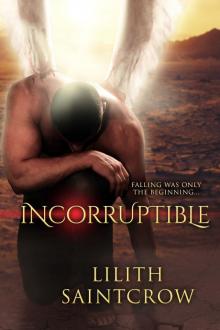 Incorruptible
Incorruptible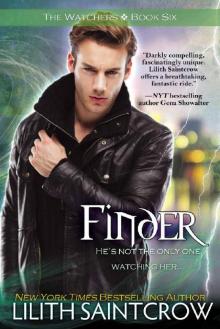 Finder (The Watchers Book 6)
Finder (The Watchers Book 6) Steelflower in Snow
Steelflower in Snow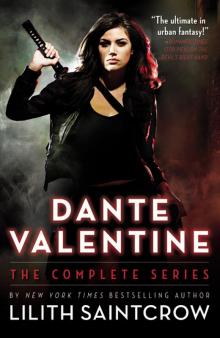 Dante Valentine
Dante Valentine Redemption Alley-Jill Kismet 3
Redemption Alley-Jill Kismet 3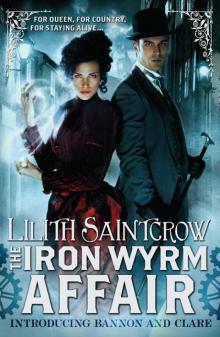 The Iron Wyrm Affair
The Iron Wyrm Affair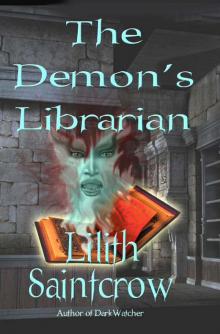 The Demon's Librarian
The Demon's Librarian The Hedgewitch Queen
The Hedgewitch Queen Redemption Alley
Redemption Alley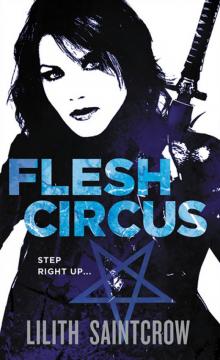 Flesh Circus
Flesh Circus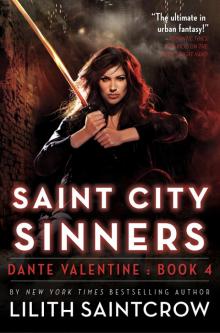 Saint City Sinners
Saint City Sinners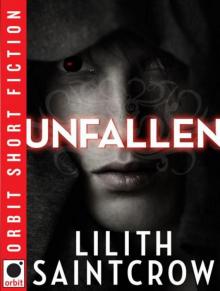 Unfallen
Unfallen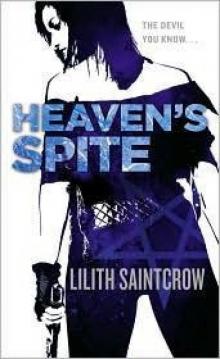 Heaven’s Spite
Heaven’s Spite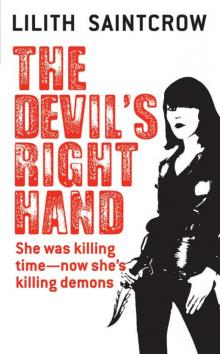 The Devil s Right Hand
The Devil s Right Hand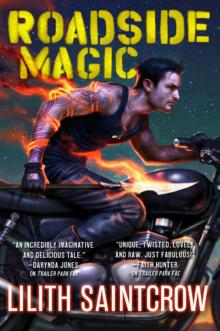 Roadside Magic
Roadside Magic Steelflower at Sea
Steelflower at Sea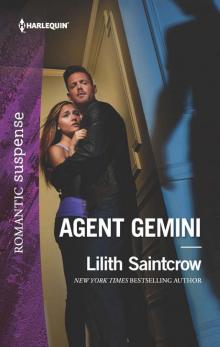 Agent Gemini
Agent Gemini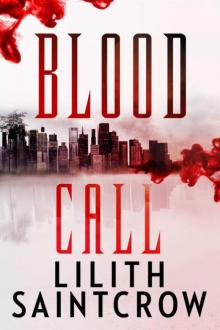 Blood Call
Blood Call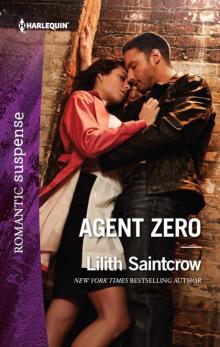 Agent Zero
Agent Zero In The Ruins
In The Ruins Atlanta Bound
Atlanta Bound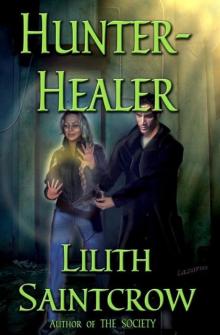 Hunter, Healer
Hunter, Healer Hunter's Prayer
Hunter's Prayer Roadtrip Z_Season 2_In The Ruins
Roadtrip Z_Season 2_In The Ruins Wasteland King
Wasteland King Pack
Pack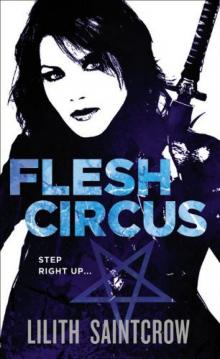 Flesh Circus - 4
Flesh Circus - 4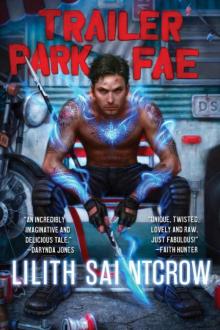 Trailer Park Fae
Trailer Park Fae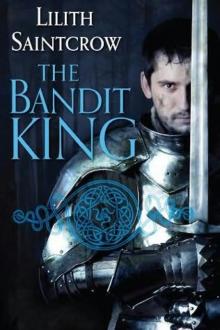 The Bandit King h-2
The Bandit King h-2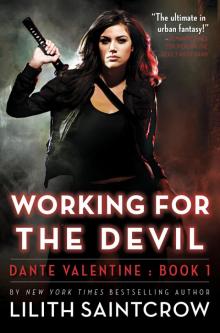 Working for the Devil
Working for the Devil Pocalypse Road
Pocalypse Road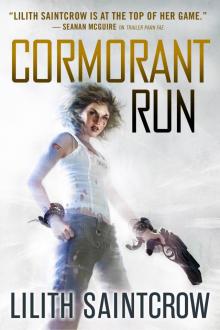 Cormorant Run
Cormorant Run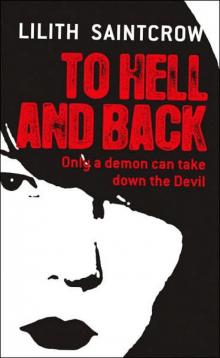 Dante Valentine Book 5 - To Hell and Back
Dante Valentine Book 5 - To Hell and Back Desires, Known
Desires, Known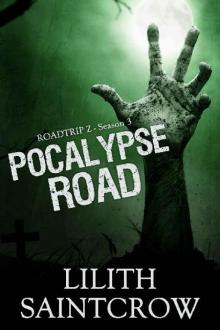 Roadtrip Z (Season 3): Pocalypse Road
Roadtrip Z (Season 3): Pocalypse Road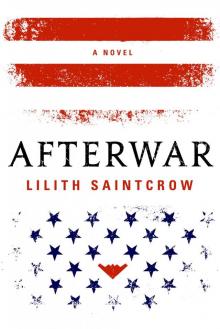 Afterwar
Afterwar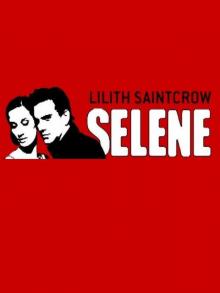 Selene
Selene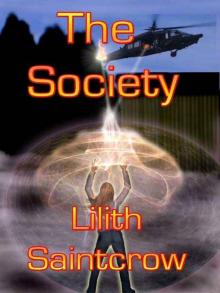 The Society
The Society The Hedgewitch Queen h-1
The Hedgewitch Queen h-1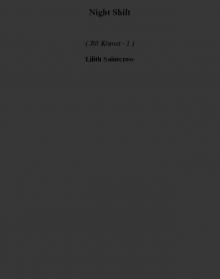 Night Shift jk-1
Night Shift jk-1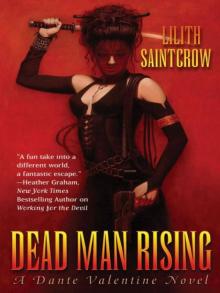 Dead Man Rising
Dead Man Rising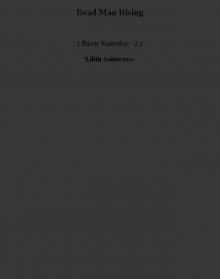 Dead Man Rising dv-2
Dead Man Rising dv-2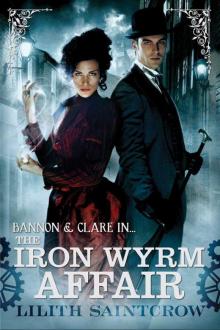 The Iron Wyrm Affair: Bannon and Clare: Book 1
The Iron Wyrm Affair: Bannon and Clare: Book 1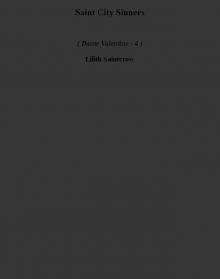 Saint City Sinners dv-4
Saint City Sinners dv-4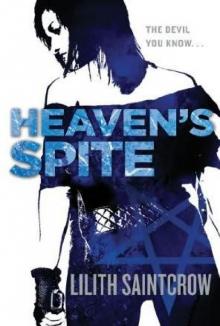 Heaven's Spite jk-5
Heaven's Spite jk-5 Beast of Wonder
Beast of Wonder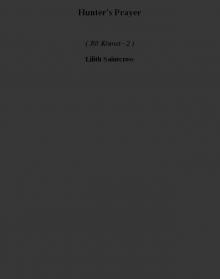 Hunter's Prayer jk-2
Hunter's Prayer jk-2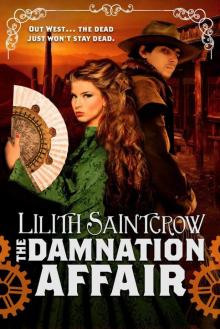 The Damnation Affair
The Damnation Affair Steelflower
Steelflower The Red Plague Affair: Bannon & Clare: Book Two
The Red Plague Affair: Bannon & Clare: Book Two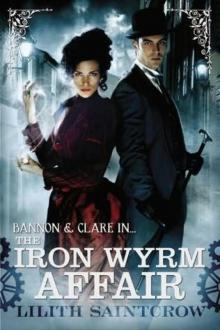 The Iron Wyrm Affair tb&ca-1
The Iron Wyrm Affair tb&ca-1 Flesh Circus jk-4
Flesh Circus jk-4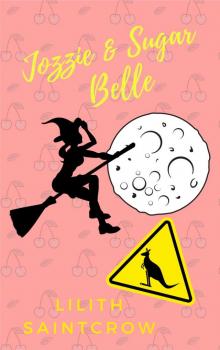 Jozzie & Sugar Belle
Jozzie & Sugar Belle Night Shift
Night Shift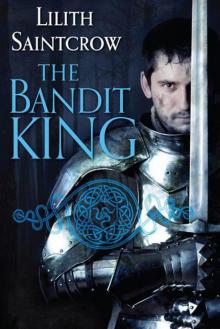 The Bandit King
The Bandit King![Hunter, Healer [Sequel to The Society] Read online](http://i1.bookreadfree.com/i1/04/05/hunter_healer_[sequel_to_the_society]_preview.jpg) Hunter, Healer [Sequel to The Society]
Hunter, Healer [Sequel to The Society]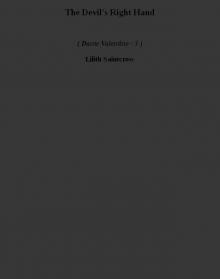 The Devil's Right Hand dv-3
The Devil's Right Hand dv-3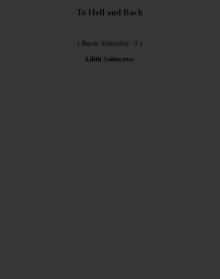 To Hell and Back dv-5
To Hell and Back dv-5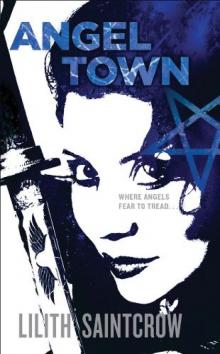 Angel Town
Angel Town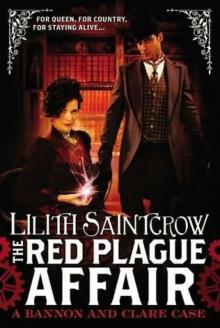 The Red Plague Affair tb&ca-2
The Red Plague Affair tb&ca-2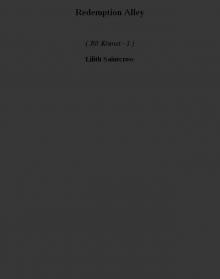 Redemption Alley jk-3
Redemption Alley jk-3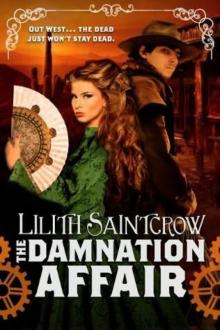 The Damnation Affair (the bannon & clare affairs)
The Damnation Affair (the bannon & clare affairs)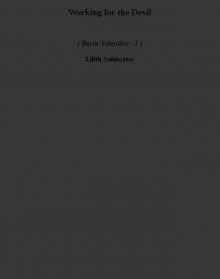 Working for the Devil dv-1
Working for the Devil dv-1